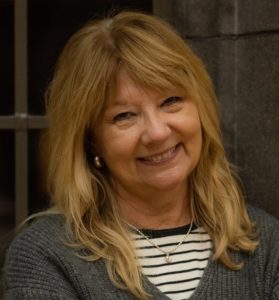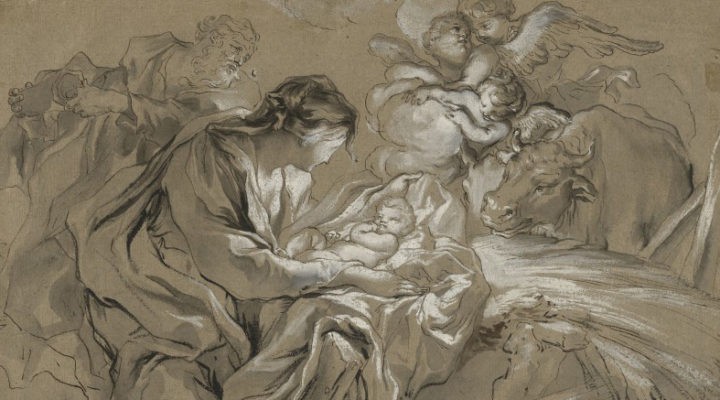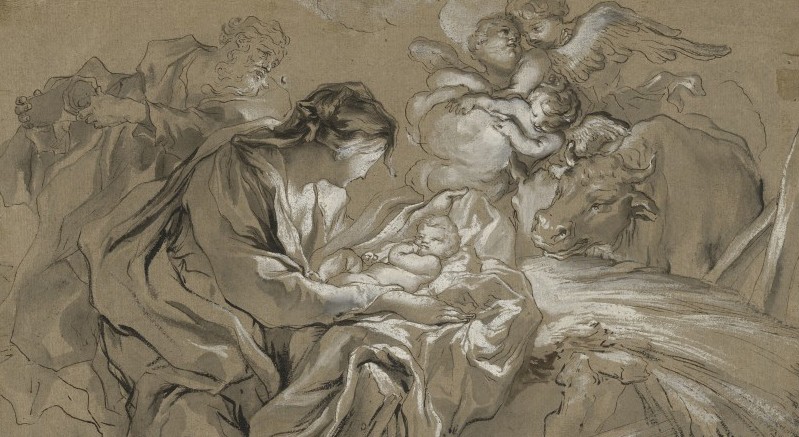Christmas decorations appeared earlier this year in my small town, even before Thanksgiving. Houses and lawns transformed overnight into wonderlands of color. Despite a year that body-slammed many of us, my neighbors used the night’s canvas to paint pictures of possibility. Hope spits in the eye of gloom.
This contrast urges me to reconsider the original Christmas story, far removed from our contemporary renditions.

Paula Mangum Sheridan
A teenage mother tries to explain a mysterious pregnancy, outside the bounds of tradition, to her family. A man, perplexed about his betrothed’s condition, weighs his options. Both live under the occupation of a foreign power that viewed Jews as problematic people to subjugate. Jewish religious leaders collaborated with Rome, securing the power and privilege denied to their kin.
Hunger was the norm. We don’t talk enough about the food insecurity that people experienced in that time and place.
The expecting couple leaves home to register for a census so that they, impoverished peasants, could pay taxes to an opulent foreign ruler. The baby is born in a place and manner that falls short of religious and health standards. A child arrives without extended family available to provide an extra set of loving hands. The parents rush to Egypt to save their toddler.
Simultaneously, a fear-driven leader orders male Jewish children’s slaughter. These parents stay on the move, migrating away from harm as best they can. They are strangers in their land. They are immigrants in a foreign country. They live a radical life, breaking the law and tradition to save their son.
Despite all, the child thrives. We know little about his early life, but we believe his family and community nurture him.
As a single mother, I find this a harrowing story, not the sweet lullaby I once understood. I have great respect for the tenacity of Jesus’s parents. It took radical courage to save their child. I’d want to be in their playgroup anytime.
It wasn’t only the bright and joyful experience that we sing about or illustrate in our Christmas cards or yard art. There are bleak and dangerous elements here.
“It’s tempting to skip over the uncomfortable part of the nativity to get to the happy place.”
It’s tempting to skip over the uncomfortable part of the Nativity to get to the happy place. We welcome the baby but avoid the painful whisperings about his paternity and fleeing home to prevent a child’s legally sanctioned murder. Mary and Joseph found a way to survive.
Some of their challenges seem to be with us here and now. It takes an act of faith to consider the inhumane parts of this story. If we make room for this messy Nativity narrative in our lives, we may see elements that frighten people in our world.
Suppose we consider the political oppression that Jesus’s parents and their people experience. In that case, we can be more aware of when people lose fundamental human rights today. When we understand that Jesus’ community was malnourished, we appreciate Jesus’ attentive care to feed hordes of hungry people. It can be just as magnificent now.
We have children and families fleeing their home countries to our borders today. In October, we experienced an increase in the number of children and immigrant parents apprehended at the U.S.-Mexico border, according to the U.S. Customs and Border Protection.
“When we understand that Jesus’ community was malnourished, we appreciate Jesus’ attentive care to feed hordes of hungry people.”
The Wall Street Journal reported that border patrol took roughly 1,000 children into custody over six days in November 2020. Southwest border patrol agents took more than 4,600 unaccompanied children into custody in October, increasing from 712 in April. Where are they now? Are they well-fed, kept safe and warm? That information is more difficult to unearth. If we look, we will see.
We have hungry children in the U.S. today. One out of every six households in the U.S. has food insecurity. The numbers are more significant among Black (25.6%) and Latinex (24.3%) households.
In 2018, 63% of food-insecure households participated in the labor force, according to the Children’s Defense Fund. Some children experience “lunch shaming” by being denied food or providing substandard meals when parents cannot pay their school lunch debt. Hunger is exacerbated with closed schools, interrupted social services due to natural disasters, and a global pandemic.
What are we doing in our communities to make sure children are eating? If we look, we will see.
Jesus’ Nativity story, fashioned in part by his parents’ outrageous courage and faith, is only the beginning. The tyranny that Jesus experienced as a child plagued him throughout his life.
Like his parents, Jesus didn’t flinch. He contrasted corrupted power to the freedom we experience when we love our neighbors as we love ourselves. He taught us that salvation was more than an individual encounter but instead intended to free us all from the many yokes that bind our communities. Salvation includes those who are invisible, unimportant and not useful to influential people.
The Nativity story flipped the narrative, breaking or fulfilling religious laws to offer freedom in body and spirit. Jesus expanded this liberation to include more than we can imagine.
How can we incorporate the radical, faithful courage of the Nativity narrative in our challenging times? What suffering can we see and alleviate in ourselves and others? We can begin, in Fredrick Buechner’s words, “where your deep gladness and the world’s deep hunger meet.” We can do what we have the power to do when and where we feel called to do it.
Opportunities to continue that radical narrative exist wherever we are needed. We can look and see.
I hope you see lots of lights in your community this Christmas season, symbols of possibility and joy. A “Star of Bethlehem,” an alignment of Jupiter and Saturn, the first in 800 years, appears Dec. 21. I will wait for it with great anticipation as I retrieve my own Christmas decorations from the basement. Like Jesus’ parents show us, we will wrestle with debilitating obstacles and become the loving light God intends us to be.
Paula Mangum Sheridan recently retired from Whittier College as an associate professor and program director of the social work department. She is a licensed clinical social worker and supports voter accessibility and the rights of people without homes in her community.


